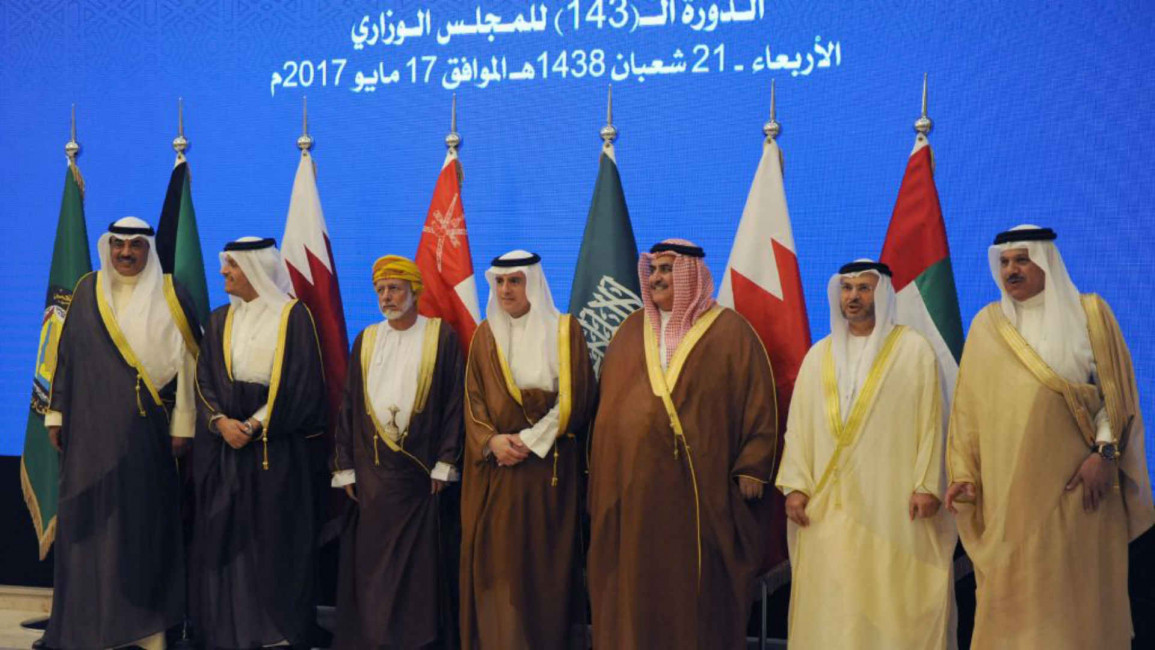Egypt state media publishes 'malicious fake news' of Qatar threatening to withdraw from GCC
Egyptian state media published a "fabricated" document in which Qatar threatens to withdraw from Gulf Cooperation Council [GCC], Qatari and Egyptian sources told The New Arab on Tuesday.
The sources said that the letter, published by the state news agency MENA from Qatar's foreign minister to the secretary general of the GCC on Monday, was malicious "fake news" drawn up by authorities in Cairo.
In the letter, Qatar gives a three-day notice to the Saudi-led bloc to lift the blockade imposed on it and compensate it for the political and economic losses or else it would announce its withdrawal from the Gulf political and economic union.
"This was a desperate attempt to harm Qatar's position and put obstacles in the way of US Secretary of State Rex Tillerson's efforts to defuse the Gulf crisis," a Qatari source said.
Tillerson arrived in Qatar on Tuesday for talks on the crisis after visiting Kuwait and will visit regional powerhouse, and longtime US ally, Saudi Arabia before leaving the Gulf on Thursday.
Sources in Egyptian media explained that an official agency had produced the document and passed it out to media outlets.
"It surprised us when our editor-in-chief sent us the statement and told us to publish it in the same format as it had come to us," a senior staffer at a state-run newspaper in Cairo said.
"The text of statement is very illogical. The language it uses is too strong for a time when the crisis has calmed down to a certain extent," the source added.
The crisis itself was triggered by the hacking of the Qatar News Agency, with the hackers planting fabricated controversial remarks by the country's emir to incite a fake news-inspired outrage.
Saudi Arabia, the United Arab Emirates, Bahrain and Egypt announced sanctions on June 5, effective immediately, against Qatar over accusations Doha supported Islamist extremism.
On June 22, the Saudi-led bloc issued a list of 13 demands which, if met, would end the sanctions, including closing broadcaster Al Jazeera and the London-based The New Arab, downgrading ties to Iran and shutting a Turkish military base in Doha.
Qatar refused to comply with the demands and has consistently denied accusations of ties to Islamist groups.
Tillerson's arrival in Doha was overshadowed by the publication of pre-existing confidential agreements between Qatar and other GCC states in which all sides had pledged to combat terror funding and avoid interference in other states.
Although Saudi and Emirati media quickly pounced on the leaks as "damning" for Qatar, Doha downplayed their significance, insisting it has abided by its commitments and stressing that the 13 demands were a violation of its sovereignty and were themselves a violation of the agreements in question.



